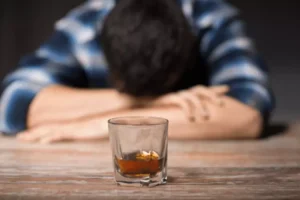
Let’s learn more about shame vs guilt, why they are common feelings in recovery and strategies for overcoming them. Keep in mind that as you progress through therapy, shame and guilt can actually intensify, as you’ll be exploring behaviors you may now regret. When we ignore our feelings of guilt and continue to do whatwe believe is wrong, we feel shame. Shame is when we internalize guilt andbegin to believe we are a bad person because we did something wrong and ignoredour feelings of guilt. The purpose of shame is to make us feel so bad that wetry to make right the wrongs we have committed. Ifothers discover the wrongs we have committed, our shame increases.
CBT and Hypnosis Show Similar Promise for Depression Treatment
Another factor the individual often had to deal with was the shame of where their addiction had taken them. In the case of the individuals with whom I worked, their lives sometimes led to multiple incarcerations. They often speak of the embarrassment of getting arrested and coming to prison yet again all due to not being able to leave their drug of choice alone. Throughout the time in which I have been in recovery, I have learned that I had to face these feelings head-on. Shame can keep you from getting back to helping yourself and moving forward.
Create things in your life that you are proud of
When someone feels shame, they may look for a way out to escape the feeling and go to something that masks the feelings to get away from the world for a while. Substance abuse is one way people achieve this, even if it’s for just a short time. Furthermore, breaking the cycle of https://ecosoberhouse.com/ and reconnecting with family, friends, and coworkers is essential for healing. Learning to accept that these people love you and that you’re part of a loving network can be hard, but is possible through therapy. Guilt is the painful admission that you have done something wrong, but that bad behavior doesn’t represent who you are as a person. Individuals feeling guilt can still recognize their positive qualities and see themselves in a good light.
- In contrast, guilt-prone individuals may be more successful in overcoming addiction, as they tend to take responsibility for their actions and seek ways to make amends.
- On the other hand, if you don’t experience enough shame when you wrong someone else, an apology can help remind you of the harm you caused.
- It can sneak its way into your world, grab a hold of things so tight, making you feel drained and burnt out emotionally.
- This therapeutic approach can be an effective way to help individuals struggling with shame and guilt during addiction recovery.
- Your tendency to be a victim or your tendency to be abusive did not just happen.
Begin Your Journey Today
These goals could be anything from starting a new hobby that you are proud of to make the big step of going back to work. Sometimes feeling that you are being productive or learning a new skill that guilt and shame in recovery you have always wanted to is enough to increase the feeling of self-worth. Research has shown that shame-proneness (the inclination to feel bad about yourself) can relate to various life problems.
This can include things like stress, social situations, or specific places or people. Once these triggers have been identified, the individual can develop strategies for avoiding them and coping with them when they arise. This is important because it can influence your behaviors and reactions. For example, guilt often motivates you to apologize, correct a mistake or make amends with someone you have wronged. Shame, on the other hand, influences actions that are self-destructive and thoughts that are negative and self-deprecating. Forgiving the people in your life that have wronged you helps you heal.
Mental Health Worksheets & workbooks for Adolescents
Peer support also plays an important role in addiction recovery by providing individuals with a sense of community, connection, and empathy. Peer support groups like Alcoholics Anonymous or Narcotics Anonymous provide participants with regular meetings where they can share their experiences openly without fear of judgement. If you’re struggling with shame or guilt in addiction recovery, Art Therapy for Coping with Shame and Guilt might be right for you. Don’t miss out on an opportunity to decrease your negative emotions by engaging your creative talents.


I let you know that I did not intend to hurt you and that it is my intention to treat you fairly in the future. Many people experience a lot of resistance to the idea of self-forgiveness. You may view self-forgiveness as “letting yourself off the hook,” as if self-judgment is the only way to improve. But negative self-judgment and self-blaming can actually act as an obstacle to self-improvement. The more shame you feel about your past actions and behaviors, the more your self-esteem is lowered and the less likely it is you will feel motivated to change. And without self-forgiveness, your level of shame will cause you to defend yourself from taking on more shame by refusing to see your faults and not being open to criticism or correction.
Instead of allowing the guilt, shame, and denial to grow and fester, it’s time to make that most important step. If you or a loved one is struggling with addiction, it’s okay to reach out for help. Self-compassion involves treating yourself with kindness and understanding, just as you would a friend in a similar situation.
How Do Feelings of Guilt and Shame Feed Addiction?
- At Thrive Treatment, we genuinely understand the complexities of guilt and shame that often accompany addiction.
- Interestingly enough, these alternative therapies were not always considered legitimate treatments for managing shame and guilt.
- The stories you tell yourself about your life and experiences have a profound impact on your feelings of shame and guilt.
- It is equally as important that you are honest about your present situation as well.
- These compassionate services are reliable, responsive, personable, and evidenced based.
